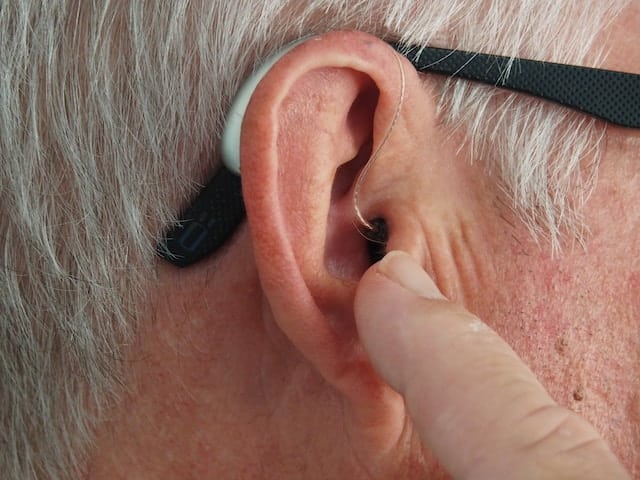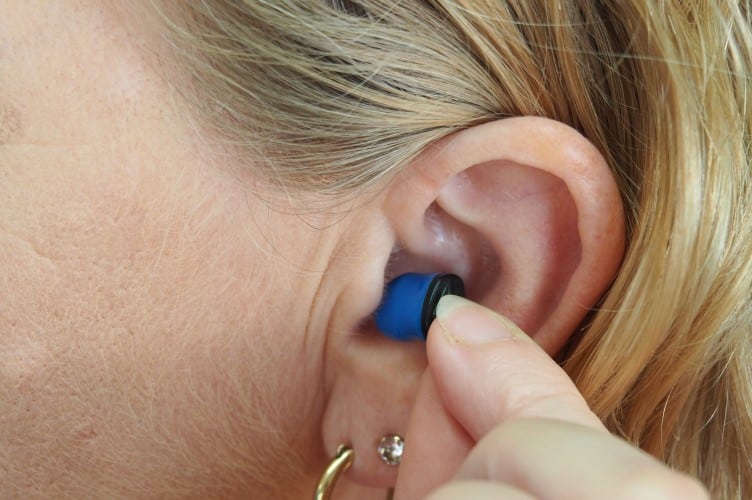Tepezza, a medication primarily used for the treatment of Thyroid Eye Disease (TED), has gained considerable attention in recent years for its effectiveness in managing this complex autoimmune condition. However, as with any medication, concerns about potential side effects arise. In particular, there have been questions regarding the association between Tepezza and hearing issues.
Understanding the potential impact of Tepezza on hearing is crucial for patients, healthcare providers, and researchers alike. By evaluating the evidence, examining studies, clinical trials, and patient reports, we aim to shed light on the relationship between Tepezza and hearing issues. It will help individuals make informed decisions and promote further scientific investigation in this area.
Understanding Tepezza and Its Mechanism of Action
Tepezza, or Teprotumumab, is a monoclonal antibody that has demonstrated remarkable effectiveness in the treatment of Thyroid Eye Disease (TED). TED, is an autoimmune condition that causes inflammation and swelling of the tissues surrounding the eyes. This can result in a range of eye-related symptoms and potential vision impairment.
By specifically targeting the insulin-like growth factor 1 receptor (IGF-1R), Tepezza plays a critical role in addressing the underlying mechanism of TED. Its mechanism of action involves blocking the activity of IGF-1R, which helps inhibit the downstream signaling pathways responsible for inflammation and tissue remodeling.
By targeting IGF-1R, Tepezza helps reduce the swelling, pain, and proptosis (bulging of the eyes) associated with TED. Its ability to modulate the immune response and prevent tissue damage has made it a breakthrough treatment option for patients with moderate to severe TED.
Clinical trials evaluating the effectiveness of Tepezza have demonstrated significant improvements in various TED symptoms. For instance, according to a study published by the National Institute of Health, a randomized, placebo-controlled study involving 88 patients showed that 83% of individuals receiving Tepezza experienced a reduction in proptosis compared to only 10% in the placebo group.
Additionally, improvements in diplopia (double vision) and overall quality of life were also observed in patients receiving Tepezza. These findings highlight the positive impact of Tepezza in managing TED symptoms, contributing to its growing popularity as a treatment option.

Examining the Hearing Issues
Although hearing loss or impairment is not a documented side effect in the prescribing information provided by the manufacturer, a thorough investigation of any reported cases is essential.
The available scientific literature does not provide substantial evidence linking Tepezza to hearing issues. Clinical trials and studies evaluating the safety and efficacy of Tepezza have not reported a significant incidence of hearing-related adverse events. However, it is worth noting that clinical trials may not always capture rare side effects, and individual experiences can vary.
While the initial trials demonstrated the efficacy of the medication, subsequent studies have identified a correlation between its use and hearing loss, tinnitus, and related medical conditions.
TruLaw reports that only a small fraction of patients, around 10 percent, experienced hearing loss symptoms which were reversible upon discontinuation of the medication. However, a study by the Endocrine Society in March 2021 revealed a significantly higher risk of hearing loss, with as much as 65 percent of individuals being affected.
These studies have led to a race to file lawsuits against the manufacturers of Tepezza. It is also worth mentioning that a Tepezza lawsuit has gained attention, where some plaintiffs have alleged hearing loss or impairment as a result of using the medication. Lawsuits like these can spark interest and raise concerns among patients and healthcare providers.
However, it is essential to approach such cases with caution and wait for the legal process to thoroughly examine the claims, including the presentation of scientific evidence.
Scientific Studies and Research Findings
Currently, the available scientific literature does not provide substantial evidence supporting a direct link between Tepezza and hearing issues. A comprehensive review of clinical trials, post-marketing surveillance data, and case reports found no significant increase in the incidence of hearing-related adverse events among patients receiving Tepezza.
Also, according to DrugWatch, the existing studies on Tepezza do not provide a clear understanding of the frequency, severity, reversibility, and underlying mechanism of hearing impairment linked to its use. However, it is crucial to acknowledge the limitations of these studies. Rare side effects or individual variations in response may not be adequately captured in large-scale clinical trials.
Healthcare professionals and researchers should stay vigilant in monitoring and assessing potential links between Tepezza and hearing issues as research progresses and data accumulates. A deeper understanding of Tepezza’s safety profile can be achieved through rigorous scientific studies and comprehensive data analysis, enabling more informed guidance for patients and healthcare providers.

Expert Opinions and Regulatory Guidelines
When evaluating the potential link between Tepezza and hearing issues, it is crucial to consider the opinions of experts and regulatory guidelines provided by health authorities. These expert opinions and guidelines play a significant role in shaping clinical practice and providing evidence-based recommendations.
Leading experts in the field have extensively studied Tepezza and its safety profile. Expert opinions in a study published by Science Direct suggest that the incidence of hearing issues associated with Tepezza is mild. They emphasize the importance of carefully monitoring patients for any changes in hearing function, particularly in individuals with pre-existing auditory conditions.
Regulatory authorities, such as the U.S. Food and Drug Administration (FDA), closely evaluate the safety and efficacy of medications like Tepezza before approving them for use. Currently, the FDA prescribing information for Tepezza does not list hearing issues as a reported adverse event. It indicates that, based on the available evidence and rigorous assessment by regulatory bodies, the risk of hearing problems associated with Tepezza is considered low.
The Importance of Individual Assessment and Consultation
Healthcare professionals play a vital role in assessing the suitability of Tepezza for each patient. They consider factors such as pre-existing hearing conditions, overall health, and other medications being taken concurrently. Through a comprehensive evaluation, healthcare providers can identify potential contraindications or individual risk factors that may affect the likelihood of hearing issues.
Individual consultation with healthcare professionals is essential to address any concerns or questions patients may have regarding Tepezza and its potential effects on hearing. This personalized discussion allows patients to make informed decisions based on their specific circumstances, weighing the potential benefits of Tepezza against any perceived risks.
Final Thoughts
Examining the evidence surrounding the potential link between Tepezza and hearing issues reveals a nuanced picture. While there is currently no substantial scientific evidence establishing a direct causative relationship, it is essential to consider reported cases and individual experiences. Expert opinions and regulatory guidelines indicate a low risk of hearing problems associated with Tepezza.
However, ongoing research and post-marketing surveillance will continue to enhance the understanding of Tepezza’s safety profile. Patients are advised to communicate any changes in hearing or unexpected symptoms to their healthcare providers promptly, ensuring personalized care and informed decision-making.














Leave a Reply